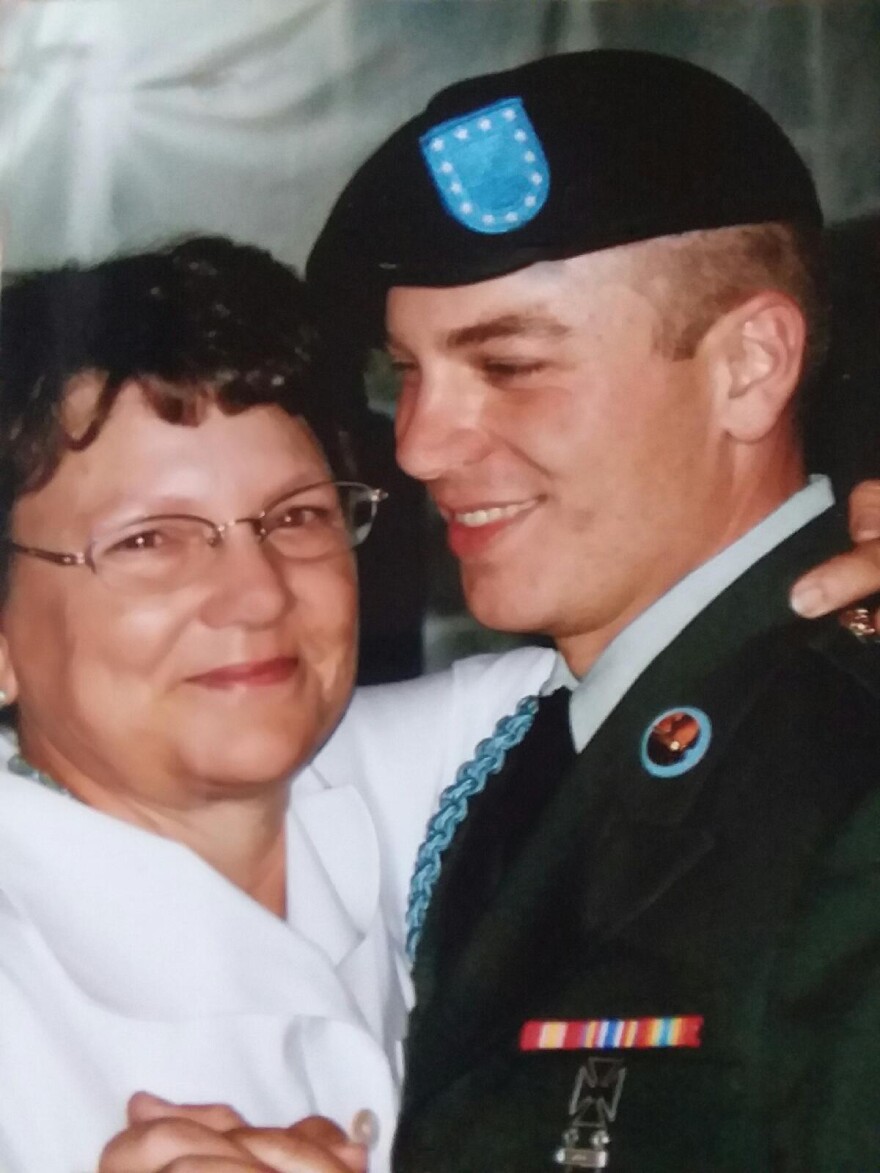StoryCorps' Military Voices Initiative records stories from members of the U.S. military and their families.
In 2012, Army Spc. Robert Joseph Allen took his own life while serving in the U.S. military. At the time, the suicide rate for active-duty troops was at its highest ever, with more soldiers dying from suicide than in combat.
Since then a law enacted in 2014 requires all service members to undergo one-on-one mental health screenings once a year and there's been growing attention to reducing military suicide.
But the stigma of suicide still plays out in the military community. The cause of death of soldiers can impact the treatment of the family who experienced the loss, and whether they receive full benefits.
There are Memorial Day events around the country, organized by veterans to specifically make sure that those who died by suicide while serving are remembered too.
Despite these efforts, on Memorial Day, when Americans traditionally honor soldiers who are killed while serving their country, those like Allen, who died by suicide, are often overlooked.
Allen grew up in a military family. His mother Cathy Sprigg, 64, remembers her son in a StoryCorps interview.
"He was a happy-go-lucky kid," she says. "When he was in T-ball, one time he hit the ball, went to second base and then turned around and said, 'Mom, I made half of a home run.' That was kind of how he looked at life, his cup half full."

Sprigg says Allen had wanted to serve starting from a young age. "Even back then, I mean, we'd pass a convoy and he'd just go nuts," she says.
When he was 24, Allen enlisted in the military and was sent to Iraq in 2009. He returned from his deployment a year later, to Washington state, where he was stationed at Joint Base Fort Lewis-McChord.
But, far from the battle lines, Allen remained embattled, his mother says.
"He told me some stories but he said, 'There [are] a lot of stories that I can't tell you, Mom,' " Sprigg says. "He didn't sleep well. He had nightmares, and that twinkle in his eye was gone."
On Aug. 2, 2012, Allen, at the age of 27, took his own life.
"As a mother, when your child's heart is full of joy, your heart is full of joy," Sprigg says. "And knowing what a dark place he must have been to do this is almost more than I could bear."
Since his death, Sprigg has helped care for Allen's two sons Gavin and Colin — the elder of whom, at 8 years old, is beginning to ask more questions about his father.
"Not long ago, he asked me, 'How did Daddy die?' " Sprigg says. "And I said to him, 'Daddy died from war because he had a very sad heart.' "
When Allen got off the plane from Iraq, she says she was grateful that he'd made it home safe.
"I didn't realize that he didn't," she says now.
On Memorial Day in particular, Sprigg doesn't feel her son is remembered in the same light as his fellow fallen soldiers who did not die by suicide while on active duty.
"I feel like he's not looked at as a hero because his wounds weren't immediate and they weren't physical," she says.
"Aside from losing my son, that's probably one of the most painful things."
Audio produced for Weekend Edition by Jud Esty-Kendall
StoryCorps is a national nonprofit that gives people the chance to interview friends and loved ones about their lives. These conversations are archived at the American Folklife Center at the Library of Congress, allowing participants to leave a legacy for future generations. Learn more, including how to interview someone in your life, at StoryCorps.org.
Copyright 2021 NPR. To see more, visit https://www.npr.org.



